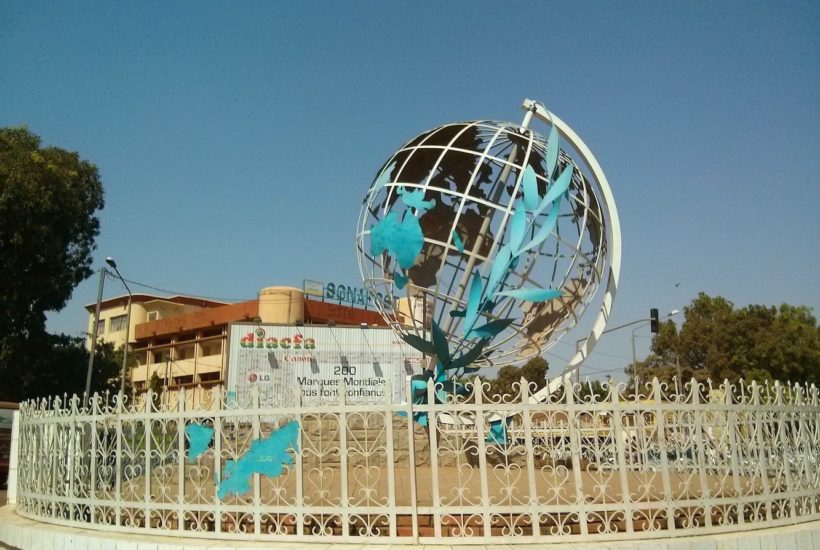Africa
State-owned companies in Africa under the review of the General Assembly of State Companies
The 28th General Assembly of State Companies opened on Thursday, June 25th 2020 in Ouagadougou, under the chairmanship of Prime Minister Christophe Joseph Marie Dabiré. For two days, the participants will review the functioning of the 21 state-owned companies for the 2019 financial year, and then formulate perspectives for 2020 management. In 2019, three state-owned companies were in deficit.

Nineteen state-owned companies and two public social security institutions are taking part in the 28th General Meeting of State-owned Companies (AGSE), whose objective is to review the activities of all state-owned companies for the year 2019. On the agenda of these two days of exchanges, are the presentation of performance reports and the report of the consultation framework for state-owned companies.
The state-owned companies will have to present their financial statements, management strategies, and the reports of their boards of directors and auditors to the General Meeting. According to Prime Minister Christophe Dabiré, this General Meeting, which has gained in maturity, is an instrument for anchoring good governance within public companies.
Find out more details about the financial situation of African state-owned companies and read the latest economic news in the world with our companion app, Born2Invest.
Overall positive management results
According to the summary report of the secretariat of the 28th session of AGSE, presented by the Secretary General of the Ministry of Commerce, Industry and Handicrafts, Aboubacar Traoré, it is in a general context of declining growth that public enterprises have achieved globally satisfactory performances.
Indeed, the overall turnover of all companies has increased by 8.73% compared to 2018. This enabled state-owned companies to contribute $574 million (CFAF 335.59 billion) to the national budget in 2019, an increase of $5.96 million (CFAF 3.49 billion) over the previous year.
Eighteen public enterprises made a cumulative net profit of $328.7 million (CFAF 192.34 billion) in 2019 against $299 million (CFAF 174.97 billion) in 2018. Unfortunately, the other three companies were in deficit. These are the Minoterie du Faso (MINOFA), the Société burkinabè de télédiffusion (SBT) and the Société nationale d’aménagement des terres et de l’équipement rural (SONATER). The cumulative deficit of these companies in difficulty amounts to $1.2 million (CFAF 704 million) in 2019. The overall net result for the 21 companies in 2019 is $327.4 million (CFAF 191.64 billion), against $295 million (CFAF 172.66 billion) in 2018, an improvement of 10.99%.
“The results achieved by public companies over the past year lead me to extend to you, on behalf of His Excellency the President of Faso, President of the General Assembly of State-owned companies, my well-deserved congratulations in your capacity as representatives of all members of the administrative and management bodies. I encourage their management and supervisory structures to invest more in the continuous improvement of their performance in order to make a significant contribution to the national economy,” said the Head of Government of Burkina Faso, Christophe Dabiré.
Results that hide the difficulties encountered
For the Prime Minister, the overall results conceal difficulties at the level of some public corporations. Indeed, in 2019, the turnover of companies such as SONATER, the Burkina Faso Post Office, CEGECI and SEPB fell by $4.64 million (CFAF 2.717 billion), $3.28 million (CFAF 1.92 billion), $330,000 (CFAF 193 million) and $196,600 (CFAF 115 million) respectively. As in 2018, investment by public enterprises was still low: only 46.39% of investment forecasts were achieved in 2019. As for personnel expenses of public enterprises, they increased by $9.52 million (CFAF 5.57 billion) in 2019.
Those of SONABEL, ONEA and La Poste Burkina Faso increased by $3.96 million (CFAF 2.32 billion), $3.02 million (CFAF 1.77 billion) and $907,800 (CFAF 531 million) respectively. The gross operating surplus, which measures the economic performance of these public enterprises, deteriorated by $16.57 million (CFAF 9.69 billion), from $260 million (CFAF 151.794 billion) in 2018 to $243 million (CFAF 142.101 billion) in 2019.
Christophe Dabiré urged the management and supervisory structures to redouble their efforts to improve the results of future years. “The viability and prosperity of companies can only be truly sustainable if they have a real internal capacity to make new investments. In this respect, I invite you to take measures to reduce to reasonable proportions the rate of increase in operating costs, in this case, personnel costs, which reached 8% between 2018 and 2019,” urged the Head of Government.
At this General Assembly, the National Universal Health Insurance Fund (CNAMU) participated for the first time as a member-observer. It will submit a detailed report to this Assembly describing the level of operationalization and the prospects for its functioning.
__
(Featured image by ibrahimdiouf via Pixabay)
DISCLAIMER: This article was written by a third party contributor and does not reflect the opinion of Born2Invest, its management, staff or its associates. Please review our disclaimer for more information.
This article may include forward-looking statements. These forward-looking statements generally are identified by the words “believe,” “project,” “estimate,” “become,” “plan,” “will,” and similar expressions. These forward-looking statements involve known and unknown risks as well as uncertainties, including those discussed in the following cautionary statements and elsewhere in this article and on this site. Although the Company may believe that its expectations are based on reasonable assumptions, the actual results that the Company may achieve may differ materially from any forward-looking statements, which reflect the opinions of the management of the Company only as of the date hereof. Additionally, please make sure to read these important disclosures.
First published in lefaso.net, a third-party contributor translated and adapted the article from the original. In case of discrepancy, the original will prevail.
Although we made reasonable efforts to provide accurate translations, some parts may be incorrect. Born2Invest assumes no responsibility for errors, omissions or ambiguities in the translations provided on this website. Any person or entity relying on translated content does so at their own risk. Born2Invest is not responsible for losses caused by such reliance on the accuracy or reliability of translated information. If you wish to report an error or inaccuracy in the translation, we encourage you to contact us.

-

 Impact Investing1 week ago
Impact Investing1 week agoEnfinity Launches First Solar Plant in Italy with Microsoft
-

 Markets6 days ago
Markets6 days agoSilver Dips Sharply, While Gold Gains Amid Mixed Stock Market
-

 Crowdfunding2 weeks ago
Crowdfunding2 weeks agoEvenFi Launches Run-Off Service to Protect Investors as Crowdfunding Platforms Exit
-

 Africa3 days ago
Africa3 days agoTunisia Holds Interest Rate as Inflation Eases, Debate Grows

























